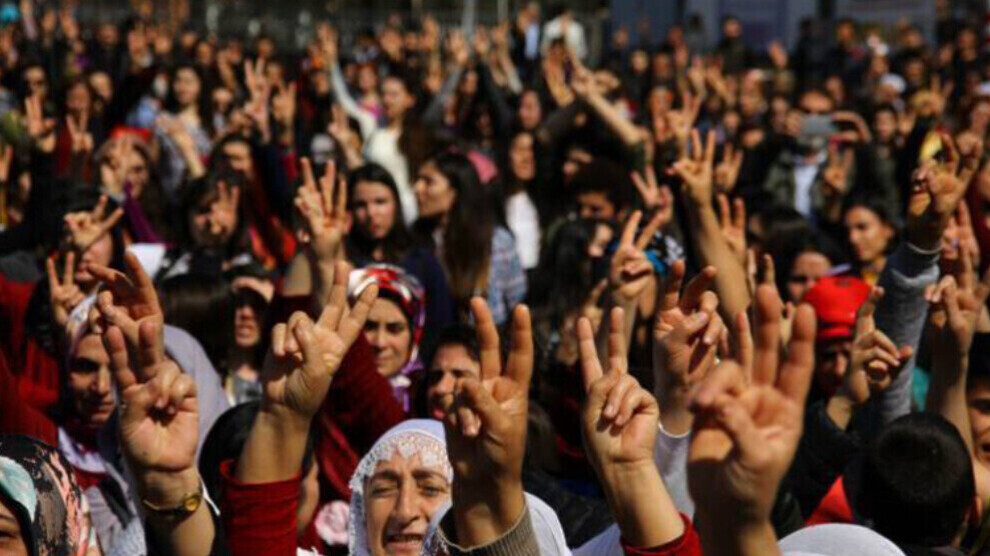HRW: Turkey’s effort to close the HDP subverts the principle of parliamentary democracy
Erdoğan’s onslaught on rights and democracy targets women, Kurds, LGBT people, democratic safeguards, says Human Rights Watch.
Erdoğan’s onslaught on rights and democracy targets women, Kurds, LGBT people, democratic safeguards, says Human Rights Watch.

The government of President Recep Tayyip Erdoğan is dismantling human rights protections and democratic norms in Turkey on a scale unprecedented in the 18 years he has been in office, said Human Rights Watch on Wednesday. The government took further dangerous measures over the past week to undermine the rule of law and target perceived critics and political opponents.
On March 19, 2021, the president issued a decree suddenly withdrawing Turkey from the Council of Europe’s Convention on Preventing and Combating Violence Against Women and Domestic Violence, known as the Istanbul Convention, a groundbreaking treaty strongly supported by the women’s rights movement in Turkey. The move came two days after the chief prosecutor of Turkey’s top court of appeal announced that he was opening a case to close down the opposition Peoples’ Democratic Party (HDP), only hours after the Erdoğan-controlled parliament improperly expelled an HDP deputy, Ömer Faruk Gergerlioğlu.
“President Erdoğan is targeting any institution or part of society that stands in the way of his wide-ranging effort to reshape Turkey’s society,” said Kenneth Roth, executive director of Human Rights Watch. “The latest developments against parliamentary opposition, the Kurds, and women are all about ensuring the president’s hold on power in violation of human rights and democratic safeguards.”
Given the hundreds of murders of women by partners and former partners in Turkey each year, Erdoğan’s move to withdraw from and weaponize the treaty for political ends and to ignore the treaty’s desperately needed protections for women is shocking, Human Rights Watch said.
“The decision to withdraw is a profoundly backward step in the struggle to protect women’s rights in Turkey and a major blow for all women across the political spectrum,” Roth said.
The move by the chief prosecutor of the Court of Cassation on March 17 to close down the Peoples’ Democratic Party, the second-largest opposition party in parliament, came shortly after parliament expelled the HDP deputy Ömer Faruk Gergerlioğlu on the pretext of his conviction for a social media posting. Gergerlioğlu’s expulsion was in reprisal for his consistent focus on the thousands of victims of Erdoğan’s human rights crackdown, while the effort to close the HDP targets the rights of millions of Kurdish voters and subverts the principle of parliamentary democracy, Human Rights Watch said.
Over the past 30 years, Turkey has closed down five pro-Kurdish political parties. As in earlier cases, the chief prosecutor’s indictment accuses the Peoples’ Democratic Party of acting “against the indivisible integrity of the state with its country and nation” (separatism) and violating the constitution and laws, necessitating its full and permanent closure.
The prosecutor also asked the court to ban 687 named individuals, including current and former members of parliament and hundreds of party officials, from political life for five years and to cut the treasury funding that the HDP, like other parties, is entitled to. The evidence cited includes speeches and political activities by parliamentary deputies in office at various times over the past eight years.
“Initiating a case to close down a political party that won 11.7 percent of the vote nationally in the 2018 general election and has 55 elected members of parliament is a major assault on the rights to political association and expression,” Roth said. “The move could deny close to six million voters their chosen representatives in violation of their right to vote.”